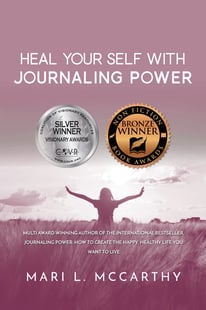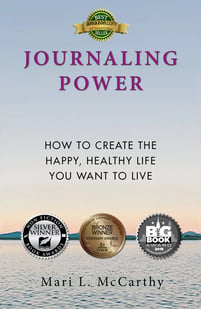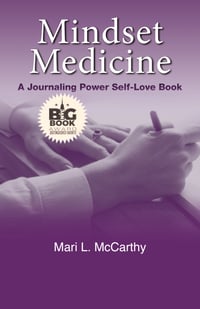Becoming a parent is one of the most rewarding experiences you’ll have in your lifetime. But, anyone who already is a parent will be quick to tell you how exhausting it can be. Sometimes, it can even be stressful, overwhelming, and filled with uncertainty.
If you’re a new parent and you’re already dealing with anxious thoughts or wondering if you’re somehow screwing everything up, you’re not alone.
However, that doesn’t mean you need to navigate the ups and downs of early parenthood on your own. Self-care, as a parent, isn’t selfish. It’s a necessity. You can’t pour from an empty cup, and doing things to maintain your physical and mental well-being is important. Journaling is a great way for new parents to work through this stage of life with greater clarity, self-awareness, and resilience.
You don’t have to be a great writer to start journaling effectively. Pick up a notebook and a pen, and start writing. Journaling can serve as a way to document memories or a therapeutic outlet for stress and emotion. If you write down your thoughts and feelings, you can also use your journal as a way to fuel personal growth, since you’ll see changes in your thoughts and behaviors over time.
With that in mind, let’s take a closer look at how journaling helps new parents navigate early parenthood, and how you can make the most of it.
Journaling Is a Memory Keeper
There’s no question that we live in a fast-paced, digital world. You might find yourself pulling out your smartphone every few minutes to snap a photo of your little one, and that’s probably not going to change any time soon.
However, journaling allows you to slow things down and create memories that are more detailed. A picture might say a thousand words, but are they your words? When you use a journal as a sort of daily diary, you’ll create entries you can look back on for years to come. You’ll be able to get detailed about the things going on in your family’s life, and eventually pass those memories on to your children one day.
While all it takes to write down these memories is a sheet of blank paper, you might also benefit from using a journal that has designated writing prompts inside. Prompts or questions can make it easier to get your creative juices flowing, and you’ll have a specific direction to turn when it comes to detailing what’s going on in your life and your children’s lives.
How you choose to keep a journal is completely up to you. However, if you want to use it as a way to store precious memories, consider getting a new one every month or every year, and organize them in order. One day, you and your kids will be able to look back on those memories and share them. You’ll also be able to look back on how much you grew, as a parent, and find peace of mind knowing you were doing everything you could for your children along the way.
Managing Your Mental Health
Again, parenting is rewarding in many ways, but there’s no denying that it’s a major challenge. Taking care of yourself and your mental well-being is essential. If you want to be the best parent possible for your child, you have to take care of yourself, first. Journaling can help with that in a variety of ways.
First, the more often you journal, the easier it will be to recognize signs that something might be wrong. For example, some of the common physical signs of depression include:
- Aches and pains
- Gut health and digestion issues
- Headaches or migraines
- Increased sensitivity to pain
If these things are bothering you on a regular basis, you’re likely to write about it in a daily journal. When you go back and look at your entries and notice a pattern of pain, it can trigger you to take action and get the help you deserve.
Additionally, journaling can inspire you to practice self-care elsewhere in your life. When you include these habits as part of a daily routine, they’ll become more normal and you eventually won’t be able to imagine getting through the day without them. For example, did you know that what you eat and drink can have a heavy impact on your mental health? Things like candy and desserts, sugary drinks, and processed meats can all cause stress. You can use journaling as a multi-faceted approach to self-care and choose to make other healthy choices in your life, or you can use it to track your food intake, too, and determine which areas of your diet should change for your mental well-being.
Finding Yourself Again
In addition to helping you manage stress, journaling can be a fantastic way to rediscover who you are and who you want to be. Consider it a form of self-discovery, or a journey you’re going on that can help you reclaim your identity.
It’s understandable to “lose” yourself in your parenting title when you have a little one. Your whole life gets wrapped up in their needs, and that’s okay. But, it doesn’t mean you have to lose every aspect of who you used to be. By using journaling as one form of self-care, you might even discover new things about yourself and what you want for the future. Utilize your journal as a way to:
- Establish new goals
- Set aside alone time
- End comparisons
- Rest and relax after a long day
Journaling promotes personal growth in that it offers a sense of control. Even when everything else might feel chaotic, sitting down with your journal each day is an effective way for you to increase your self-awareness and develop a greater understanding of who you are. It provides a safe time and space for you to collect your thoughts and cultivate ideas that can shape your future.
Journaling is only one form of self-care. It should be combined with things like prioritizing sleep, maintaining a healthy diet, and staying physically active. But, it’s also unique in that it allows you to express yourself freely while keeping track of memories that will last a lifetime. Make the investment in a notebook for yourself, and start writing today.
 Author bio: Miles Oliver is an independent writer with a background in business and passion for psychology, news, and simply helping people live happy and fulfilled lives. He has lived and traveled all over the United States and continues to expand his awareness and experiences. When he is not writing, he is most likely mountain biking or kicking back with a cup of tea.
Author bio: Miles Oliver is an independent writer with a background in business and passion for psychology, news, and simply helping people live happy and fulfilled lives. He has lived and traveled all over the United States and continues to expand his awareness and experiences. When he is not writing, he is most likely mountain biking or kicking back with a cup of tea.
Journaling Power Revolution Series






Leave Comment